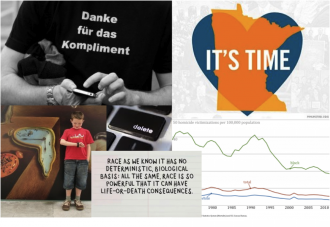 Still Wise Words
Still Wise Words
Hopefully, we all have a teacher or two who stirs fond memories. For me, one of the first to spring to mind is Loren J. Samons II, a professor of classical studies at my alma mater, Boston University. Prof. Samons is notable for many reasons (one of his brilliant strokes was to refer to the class, collectively, as “scholars”—a convention that set the tone for each lecture in just one word), but this week, I found an old syllabus. I wondered why I’d kept it—I took several classes from Prof. Samons in my time at BU, but it still seemed an odd document to cling to, some 12 years after graduation. And then I read. Nestled within many wise words for young students learning to learn, write, engage with literature, and find their way through sources both ancient and modern, was this gem:
Your most important functions on the computer are “delete” and “trash.” The more frequently you employ these, the better your paper will be. The most dangerous functions are “cut” and “paste.” No sentence or paragraph you compose has a right to exist. It is more difficult to correct a bad sentence than it is to write a new, good sentence. A paragraph that is ill-constructed in one part of your paper will be just as ill-constructed two pages later.
The italics are mine. Elsewhere, Samons states so many things that have become part of my standard advice to writers. Surely, I lifted them from this influential professor. For instance:
If you cannot point to a thesis statement or several sentences informing the reader precisely what you will argue, you need to rewrite your introduction.
And:
The key to knowing whether a paper is long enough [or short enough] is the following question: Have I established my case?
And of course:
The best argument can be spoiled by poor or sloppy presentation… special care should be paid to spelling, punctuation, grammar, and vocabulary. The following tips may help…: Dictionaries should be consulted frequently… Read your work to yourself aloud… Give it to someone whose writing you respect or who will be brutally honest with you [to read].
Now, on to a few authors who’ve hit every item on Dr. Samons’ list this week.
Features:
“Social Fact: The Homicide Divide,” by Lauren J. Krivo and Julie A. Phillips. Murder is the most common cause of death among young black males. Here are the facts.
“Color-Blindness vs. Race-Consciousness: An American Ambivalence,” by Meghan A. Burke. Burke suggests that by avoiding claims to colorblindness and, instead, facing tricky racial issues head-on, the U.S. will arrive more quickly at a country in which race is present without being divisive.
The Editors’ Desk:
“If You See Something, Say Something,” by Chris Uggen. The unexpected, but earnest compliment: a humble but effective bonding mechanism. Or: go out of your way to be nice. It’s worth the trip.
“The Quarterback Sociologist,” by Doug Hartmann. The 49ers’ Colin Kaepernick is many things, but is he the prime example of QB habitus?
Citings & Sightings:
“After DOMA,” by Erin Hoekstra. Sociologist Rick Settersten on “chasing the law” when it comes to marriage and adoption rights for all.
“You’re Dad’s Favorite,” by John Ziegler. Resentment builds when fathers show their favoritism.
“The More Things Change,” by John Ziegler. American time use hasn’t changed much in 50 years, though we are getting more ________ (hint: rhymes with “fredentary”).
Teaching TSP:
“Book Review Speed Dating,” by Hollie Nyseth Brehm. A witty way to get students talking about their readings.
A Few From the Community Pages:
Oh noes. It’s late. The week’s nearly over. Today I must leave it with: the Community Pages are churning out great content as usual, so please, please, share your favorites in the comments!
Scholars Strategy Network:
“Violence against Women Riding Public Transport Is a Global Issue—Especially in Developing Countries,” by Meda Chesney-Lind.
“The Pros and Cons of State Tax Breaks for Senior Citizens,” by Bayliss J. Camp and Charles Lockhart.

Comments